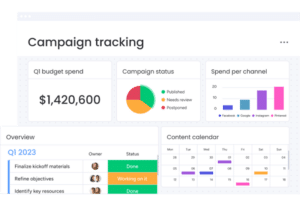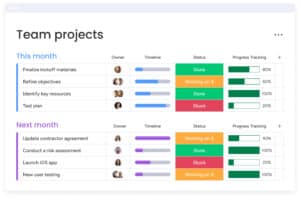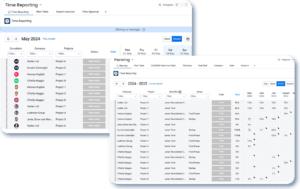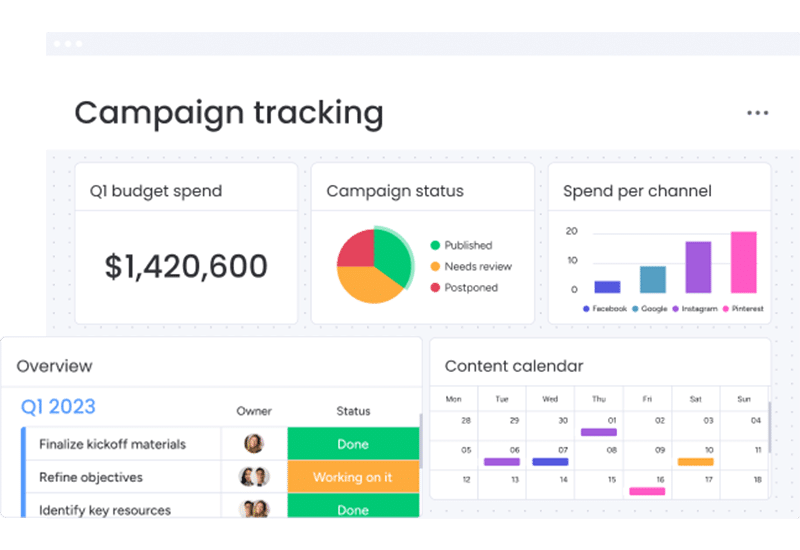Introduction
In today’s fast-paced business environment, the alignment of sales and customer support teams is more critical than ever. These two departments, although distinct in their roles, are interconnected in their quest to drive business growth and ensure customer satisfaction. However, achieving harmony between sales and support can be a challenging endeavour. This is where Customer Relationship Management (CRM) platforms emerge as game-changers. Hence, with this blog post, we’ll discover the importance of synchronising sales and customer support with CRM platforms.
CRM platforms are not just tools for managing contacts or sales pipelines; they are powerful systems designed to bridge the gap between sales and customer support. By providing a unified view of customer interactions, CRM platforms ensure that both sales and support teams are on the same page. This synchronisation is vital in understanding customer needs, providing timely solutions, and building long-term relationships.
In this blog post, we’ll explore the transformative role of CRM platforms in synchronising sales and customer support. We’ll delve into how these systems facilitate seamless communication, enhance customer experience, and provide valuable insights for strategic decision-making. Whether you’re a small business owner or a key player in a larger corporation, understanding the synergy between sales and customer support through CRM platforms could be the missing link in your customer engagement strategy.
Understanding the Sales-Customer Support Relationship
In the journey to synchronise sales and customer support with CRM platforms, it’s essential to first grasp the intricate relationship between these two key business areas. This understanding lays the foundation for effective integration and utilization of CRM systems.
The Interdependent Roles of Sales and Support
Sales and customer support teams, though distinct in their primary functions, are fundamentally interlinked in the customer lifecycle. The sales team is responsible for attracting and acquiring new customers, setting the stage for a long-term relationship. On the other hand, customer support maintains and nurtures these relationships, handling inquiries and resolving issues that may arise post-purchase.
The need for synchronising sales and customer support with CRM platforms arises from this interdependence. When these teams operate in silos, opportunities for cross-selling, upselling, and customer retention can be missed. CRM platforms help in breaking down these silos, ensuring a seamless transition of customer information and a unified approach to customer engagement.
Common Challenges in Synchronising Sales and Support
Despite the clear benefits, synchronising sales and customer support with CRM platforms can present challenges. The most common hurdle is the existence of data silos, where customer information is trapped within one department, inaccessible to the other. This leads to a fragmented customer experience, where sales and support are not aligned in their communication and approach.
Another challenge is the differing objectives and metrics used by sales and customer support teams. While sales might focus on closing deals and meeting quotas, support teams prioritize resolving customer issues and maintaining satisfaction. CRM platforms play a pivotal role in aligning these objectives by providing a comprehensive view of customer interactions, enabling both teams to work towards a unified goal – customer satisfaction and loyalty.
By understanding these dynamics and challenges, businesses are better equipped to implement CRM solutions that effectively synchronise sales and customer support. This leads to improved customer experiences and business outcomes.
Omnitas Newsletter
Sign up for our monthly newsletter to stay up-to-date on our latest blog articles, videos and events!
Thank you!
You have successfully joined our subscriber list.
CRM Platforms: The Synchronisation Solution
As businesses strive to perfect the art of synchronising sales and customer support, CRM platforms stand out as essential tools in this endeavour. These platforms offer more than just a database of customer interactions. They are the linchpin in aligning the goals and activities of sales and customer support teams.
What is a CRM Platform?
At its core, a CRM platform is a technology system that manages all aspects of an organization’s interactions with current and potential customers. It’s a centralized hub for storing customer data, tracking interactions, and automating various sales and support tasks. The true power of CRM lies in its ability to provide a unified, 360-degree view of the customer, crucial for synchronising sales and customer support with CRM platforms.
Key Features of CRM for Sales and Support Alignment
CRM platforms come equipped with a range of features designed to facilitate the synchronisation of sales and customer support. Key among these are:
- Shared Customer Data: By centralizing customer data, CRM ensures that both sales and support have access to the same information, leading to more cohesive interactions and strategies.
- Communication Tools: CRM platforms often include integrated communication tools that enable sales and support teams to collaborate and share insights, further enhancing their coordination.
- Workflow Automation: Automating routine tasks allows teams to focus on more strategic activities, ensuring that both sales and support are working efficiently and in tandem.
- Analytics and Reporting: Advanced analytics help in understanding customer behaviour and preferences, enabling sales and support to make informed decisions and tailor their approaches.
Streamlining Operations with CRM
The implementation of CRM platforms goes beyond mere data management; it revolutionizes the way sales and customer support teams operate. By synchronising sales and customer support with CRM platforms, organizations can streamline their operations. This ensures that both teams work in harmony. This synchronisation leads to a more efficient workflow, where sales can seamlessly hand off clients to support, and support can provide valuable feedback to sales. This creates a continuous loop of improvement and customer-centric strategy.
Real-World Benefits of CRM Integration
The theoretical advantages of synchronising sales and customer support with CRM platforms are substantial. However, the real-world benefits truly highlight the impact of this integration. Let’s explore how CRM systems tangibly improve business operations and customer experiences.
Enhanced Communication and Collaboration
One of the most immediate benefits of synchronising sales and customer support with CRM platforms is the enhancement in communication and collaboration. With CRM, information flows seamlessly between teams, ensuring that everyone is on the same page. This leads to:
- Consistent Customer Messaging: Ensuring that sales and support convey consistent messages to customers, reinforcing trust and reliability.
- Efficient Resolution of Customer Issues: When sales and support have access to the same customer data, they can resolve issues more efficiently, leading to higher customer satisfaction.
Improved Customer Experience and Satisfaction
CRM platforms play a pivotal role in improving the overall customer experience. By synchronising sales and customer support, organizations can offer a more personalized and responsive service. This results in:
- Personalized Customer Interactions: Sales and support teams can use CRM data to understand customer preferences and history, allowing for more tailored interactions.
- Increased Customer Loyalty: A unified approach to customer management often translates into higher customer loyalty and repeat business, as customers appreciate the seamless and attentive service.
Data-Driven Insights for Strategic Decision Making
Another significant benefit of synchronising sales and customer support with CRM platforms is the ability to harness data for strategic decision-making. CRM systems provide valuable insights into customer behavior and preferences, enabling businesses to:
- Identify Cross-Selling and Upselling Opportunities: Sales and support can leverage CRM data to identify potential sales opportunities within the existing customer base.
- Make Informed Business Decisions: The analytics and reporting tools within CRM platforms help in understanding market trends and customer needs, guiding strategic business decisions.
Streamlining Customer Lifecycle Management
CRM integration ensures that the entire customer lifecycle, from prospecting to post-sale support, is managed cohesively. This streamlined approach benefits businesses by:
- Reducing Operational Costs: Efficient processes and improved coordination between teams can lead to cost savings.
- Enhancing Team Productivity: With a clear understanding of customer needs and streamlined processes, teams can work more effectively and productively.

Implementing CRM for Maximum Effectiveness
While understanding the benefits of CRM platforms is crucial, the key to unlocking their full potential lies in effective implementation. Synchronising sales and customer support with CRM platforms requires a strategic approach to ensure maximum effectiveness.
Best Practices for CRM Integration
Effective CRM integration is not just about technology; it’s about aligning people, processes, and technology. To successfully synchronise sales and customer support with CRM platforms, consider these best practices:
- Clear Goal Setting: Define what you want to achieve with your CRM system, whether it’s improved customer retention, increased sales, or better customer service.
- Staff Training and Engagement: Ensure that both sales and customer support teams are adequately trained and understand the benefits of the CRM system. Their buy-in is crucial for successful adoption.
- Data Quality Management: High-quality, accurate data is the foundation of any CRM system. Ensure that your data is clean, up-to-date, and relevant.
- Customization and Integration: Tailor the CRM system to fit your specific business needs and integrate it with other tools and systems used by your teams.
Overcoming Common Implementation Challenges
Implementing a new system can come with challenges. Common issues in synchronising sales and customer support with CRM platforms include:
- Resistance to Change: Employees may be resistant to new systems and processes. Address this by demonstrating the benefits and providing adequate support during the transition.
- Technical Difficulties: Technical issues can arise during CRM implementation. Having a skilled IT team on hand to address these problems is crucial.
- Ensuring Continuous Improvement: A CRM system is not a one-time implementation but a continuous process. Regularly review and update the system to ensure it meets evolving business needs.
Measuring Success and ROI
Finally, to ensure the CRM implementation is effective, it’s important to measure success:
- Track Key Performance Indicators (KPIs): Monitor metrics related to sales performance, customer satisfaction, and team productivity to gauge the impact of the CRM system.
- Solicit Feedback: Regular feedback from users of the CRM system, both from sales and support teams, can provide insights into areas for improvement.
- Assess ROI: Evaluate the return on investment by comparing the costs of CRM implementation against the benefits, such as increased sales, improved customer retention, and efficiency gains.
Conclusion
The journey of synchronising sales and customer support with CRM platforms is not just a trend. It’s a strategic necessity in today’s competitive business landscape. By effectively integrating CRM systems, companies can ensure seamless communication between sales and support, a deeper understanding of customer needs, and more efficient business processes. The benefits, as we’ve seen, range from enhanced customer satisfaction to improved sales outcomes and operational efficiencies.
As we’ve explored the multifaceted role of CRM platforms in bridging the gap between sales and customer support, it’s clear that the right CRM solution can transform the way businesses interact with their customers. Now, the path to this transformation could be just a few clicks away.
Discover the Power of monday.com Sales CRM
Ready to experience the benefits of a robust CRM system? We invite you to explore monday.com Sales CRM, a versatile platform that offers intuitive, customizable solutions for synchronising sales and customer support. With monday.com, you can streamline your sales process, enhance customer support interactions, and gain valuable insights into your customer base. Take the first step towards a more integrated, efficient sales and support strategy. Try monday.com Sales CRM for free through our exclusive link below and see the difference for yourself.
Stay Informed with Our Monthly Newsletter
Did you find this article enlightening? Keep up with the latest insights in marketing, sales, IT, and more by signing up for our monthly newsletter below. Each edition is packed with valuable content, including articles like this, informative videos, upcoming webinars, and other resources designed to keep you informed and ahead of the curve. Don’t miss out on the opportunity to stay updated with the latest trends and solutions in business technology.
























